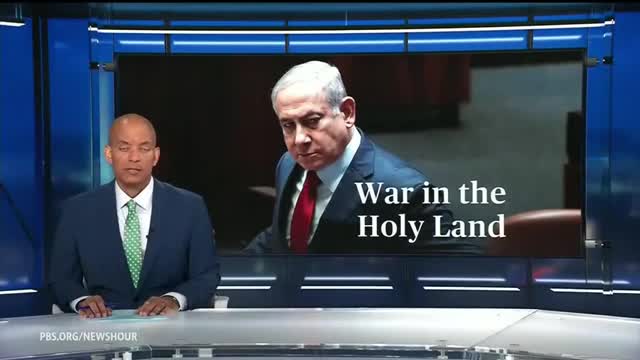Netanyahu faces military backlash amid US weapon claims

This article was created by AI summarizing key points discussed. AI makes mistakes, so for full details and context, please refer to the video of the full meeting. Please report any errors so we can fix them. Report an error »

In a tense exchange, Israeli Prime Minister Benjamin Netanyahu has publicly criticized the Biden administration, claiming that the U.S. has withheld essential military supplies needed for Israel's ongoing conflict in Gaza. This assertion has been met with strong rebuttals from U.S. officials, who labeled Netanyahu's statements as \"not accurate\" and \"deeply disappointing.\" The diplomatic rift comes amid rising tensions between Netanyahu and the Israeli military, which has voiced concerns over his claims of a decisive victory over Hamas.
The Israeli Defense Forces (IDF) have expressed their discontent with Netanyahu's leadership, particularly regarding his lack of a clear military strategy. The IDF's top spokesman publicly stated that the notion of completely eliminating Hamas is misleading, warning that without a comprehensive plan for Gaza's future, the conflict could persist. This unprecedented public criticism from military officials highlights a growing divide between Netanyahu and the military establishment, which has traditionally been more discreet in its dissent.
Netanyahu's coalition government is also facing internal pressures, as he urged coalition partners to unite in support of military efforts. The prime minister's ability to maintain this coalition is crucial for advancing a ceasefire deal, which is a pressing demand from the Israeli public.
As the situation evolves, U.S.-Israeli relations remain strained. Netanyahu's recent video statement, which accused the Biden administration of withholding military aid, has further complicated diplomatic ties. U.S. National Security Council spokesman John Kirby clarified that only one weapons transfer had been frozen, contradicting Netanyahu's claims.
The backdrop of these tensions includes concerns about potential conflicts with Hezbollah, as Israeli military leaders view the ongoing Gaza war as a precursor to a more significant confrontation in the north. The IDF is reportedly preparing for the possibility of a broader conflict, which could have severe implications for regional stability.
As Netanyahu navigates these challenges, the dynamics between his government, the military, and the U.S. will be critical in shaping Israel's military strategy and diplomatic relations in the coming months.
The Israeli Defense Forces (IDF) have expressed their discontent with Netanyahu's leadership, particularly regarding his lack of a clear military strategy. The IDF's top spokesman publicly stated that the notion of completely eliminating Hamas is misleading, warning that without a comprehensive plan for Gaza's future, the conflict could persist. This unprecedented public criticism from military officials highlights a growing divide between Netanyahu and the military establishment, which has traditionally been more discreet in its dissent.
Netanyahu's coalition government is also facing internal pressures, as he urged coalition partners to unite in support of military efforts. The prime minister's ability to maintain this coalition is crucial for advancing a ceasefire deal, which is a pressing demand from the Israeli public.
As the situation evolves, U.S.-Israeli relations remain strained. Netanyahu's recent video statement, which accused the Biden administration of withholding military aid, has further complicated diplomatic ties. U.S. National Security Council spokesman John Kirby clarified that only one weapons transfer had been frozen, contradicting Netanyahu's claims.
The backdrop of these tensions includes concerns about potential conflicts with Hezbollah, as Israeli military leaders view the ongoing Gaza war as a precursor to a more significant confrontation in the north. The IDF is reportedly preparing for the possibility of a broader conflict, which could have severe implications for regional stability.
As Netanyahu navigates these challenges, the dynamics between his government, the military, and the U.S. will be critical in shaping Israel's military strategy and diplomatic relations in the coming months.
View full meeting
This article is based on a recent meeting—watch the full video and explore the complete transcript for deeper insights into the discussion.
View full meeting